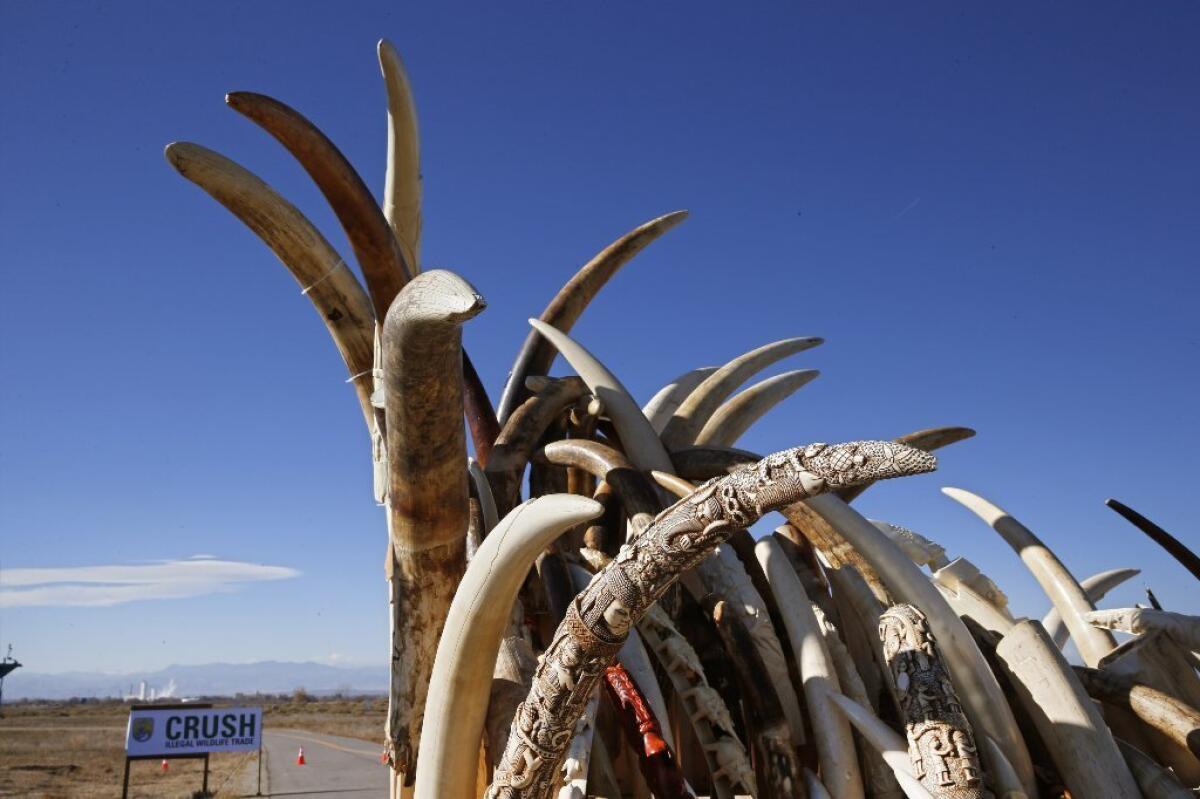How to end ivory poaching

Last week, the Department of the Interior’s Fish and Wildlife Service ground up 6 tons of ivory that had been seized from illegal imports and interstate sales since 1989 when an international trade ban went into effect. The Obama administration destroyed the U.S. stock to remind the world that the voracious global appetite for ivory and ivory products is threatening the very existence of African elephants. Well-armed poachers, working in criminal syndicates, are systematically killing large numbers of elephants — a breathtaking 30,000-plus last year alone. At current rates, wild African elephants will be wiped out within a decade.
The ivory “crush” was a largely symbolic act to raise the public’s awareness of the tragedy that is unfolding in Africa. Skeptics will question the usefulness of the crush, suggesting that the United States cannot do much, as a practical matter, to address poaching because the problem is in Africa, where the elephants are being killed, or in Asia, where the demand for ivory has skyrocketed.
Not so. The surprising and distressing reality is that the U.S. is considered the world’s second-largest market for ivory, behind only China. To the casual American consumer, ivory must be legal; it is not hard to find or to purchase. A 2008 survey found more than 24,000 ivory products in more than 650 outlets throughout the United States.
The root problem is that there is no longer a bright line outlawing the sale of ivory in the U.S., or anywhere elsewhere. When the world last confronted a large increase in elephant poaching in the late 1980s, the international community banded together and issued an outright ban on importing ivory. The message was clear and unequivocal: No more ivory should enter commerce, period. After the ban was put in place in 1989, poaching rates declined dramatically.
Unfortunately, that bright line eroded over time. In 1999, and again in 2008, the international convention that had banned ivory sales in 1989 allowed “limited” international sales of ivory stocks to go forward. Meanwhile, in-country sales of “old” ivory continued to be allowed, muddying the message that trade in ivory needs to stop. Not surprisingly, poaching rates steadily increased, and then accelerated, to today’s crisis levels.
The U.S. needs to show leadership by putting a bright line back in place: an outright ban on the sale of vanity ivory. The current system is needlessly complex and rife with loopholes. Although ivory imports are disallowed in general, African ivory that was imported into the United States before 1989 can be bought and sold without restriction. And carved African ivory pieces that are more than 100 years old can be freely traded in commerce.
With these loopholes and the difficulty of proving ivory’s origins and age, the few inspectors on the job simply do not have the resources or the tools to shut down the active U.S. market. And, once caught, illegal ivory traders rarely face the type of stiff penalties needed to deter sophisticated criminals.
As a nation, we embraced then-Secretary of State Hillary Rodham Clinton’s call to action a year ago to stop the poaching scourge, and we applauded President Obama’s directive to develop a comprehensive game plan to attack the problem. That game plan needs to start with a ban on the sale of ivory products in one of the largest ivory markets in the world — the U.S. — and an across-the-board crackdown on all meaningful commerce in ivory, with stiff penalties and jail time.
If the United States draws a bright line, and stops trading in ivory products, it will lead by example. And our nation will have earned the right to challenge China and other nations to do the same.
David J. Hayes, a former deputy secretary of the U.S. Department of the Interior, was appointed in September to the president’s Advisory Council on Wildlife Trafficking. The views here are his own.
More to Read
A cure for the common opinion
Get thought-provoking perspectives with our weekly newsletter.
You may occasionally receive promotional content from the Los Angeles Times.





